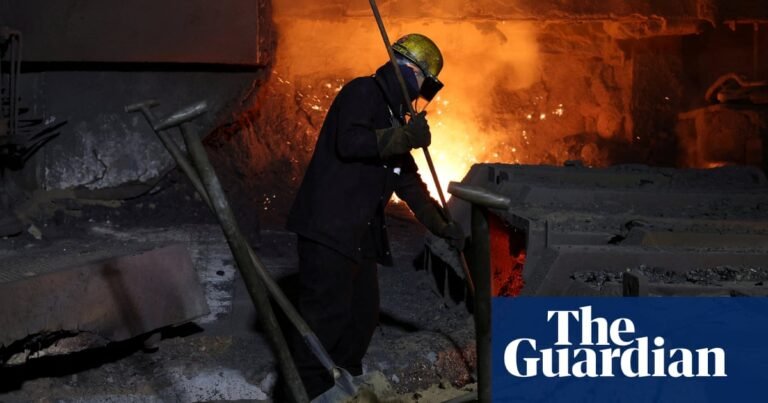Britain has focused too much on trying to sign major trade deals with other countries, ministers have said, as they lay out the case for a big shift in post-Brexit trade policy.
The change forms the heart of the government’s new trade strategy, which ministers will publish on Thursday.
The strategy marks a turn away from the days of pursuing wide-ranging free trade agreements with countries such as the US and India, which were sold as one of the biggest prizes of Brexit.
Instead, ministers say they now want to focus on more modest agreements such as deals to recognise foreign professional qualifications, which can help the UK’s services sector in particular. But they are also leaving the door open to new tariffs on foreign steel when the current ones run out next year.
Jonathan Reynolds, the business secretary, said: “The UK is an open trading nation but we must reconcile this with a new geopolitical reality and work in our own national interest.”
He added: “Broad and complex trade deals like we secured with India will bring billions to our economy every year but to deliver [our plan], we will strike more agile, targeted deals that exploit the sectors which drive the most growth for our economy.”
Since coming to office, Labour has signed deals with the US, India and the EU, none of which are fully fledged free trade agreements, even though British officials have been pushing for such deals with both the US and India for years.
Conservatives have criticised the deal with India because the government gave Indian workers a tax break to finalise it – something Tory ministers had refused to do – in return for a relatively limited set of tariff reductions.
Meanwhile the US deal was negotiated in such a hurry that officials on both sides are still haggling over some of the fine print, including whether steel tariffs will be dropped as planned.
Reduced tariffs on cars and aircraft parts will come in on Monday, but the UK is still trying to assuage American concerns about the fact that Tata Steel now imports most of its raw materials from abroad.
The government’s new strategy suggests it wants to sign more of these limited deals, despite their downsides, with officials arguing that this is a more realistic aim in a world where many countries are imposing new trade barriers rather than eliminating them.
skip past newsletter promotion
Sign up to Business Today
Get set for the working day – we’ll point you to all the business news and analysis you need every morning
Privacy Notice: Newsletters may contain info about charities, online ads, and content funded by outside parties. For more information see our Privacy Policy. We use Google reCaptcha to protect our website and the Google Privacy Policy and Terms of Service apply.
after newsletter promotion
But while the document will focus mainly on how to reduce impediments to trade, it will also keep open the option of imposing new tariff-free quotas on certain steel imports, as British steel companies have called for.
The government said on Wednesday it would look at ways to extend protectionist measures limiting imports beyond June 2026, when they are due to expire. Ministers are so concerned about protecting UK steelmaking capacity that they previously nationalised the British Steel works at Scunthorpe.
UK Steel, a lobby group, has long called for the extension of measures to protect British steelmakers, fearing a “cliff edge” next year. However, the industry is unclear on how the government will impose quotas while still complying with rules set by the World Trade Organization (WTO). Under WTO rules, the temporary safeguards cannot be extended again.
Douglas Alexander, a trade minister, said: “As we target these agreements, we will take every step necessary to safeguard British businesses from the increasingly protectionist mood in much of the world by sharpening our defensive toolkit.”
Officials said however that the trade strategy reinforced Britain’s commitment to the WTO, suggesting they will look for other ways to protect the British steel industry. They said the government remained “agnostic” on how best to do so.
